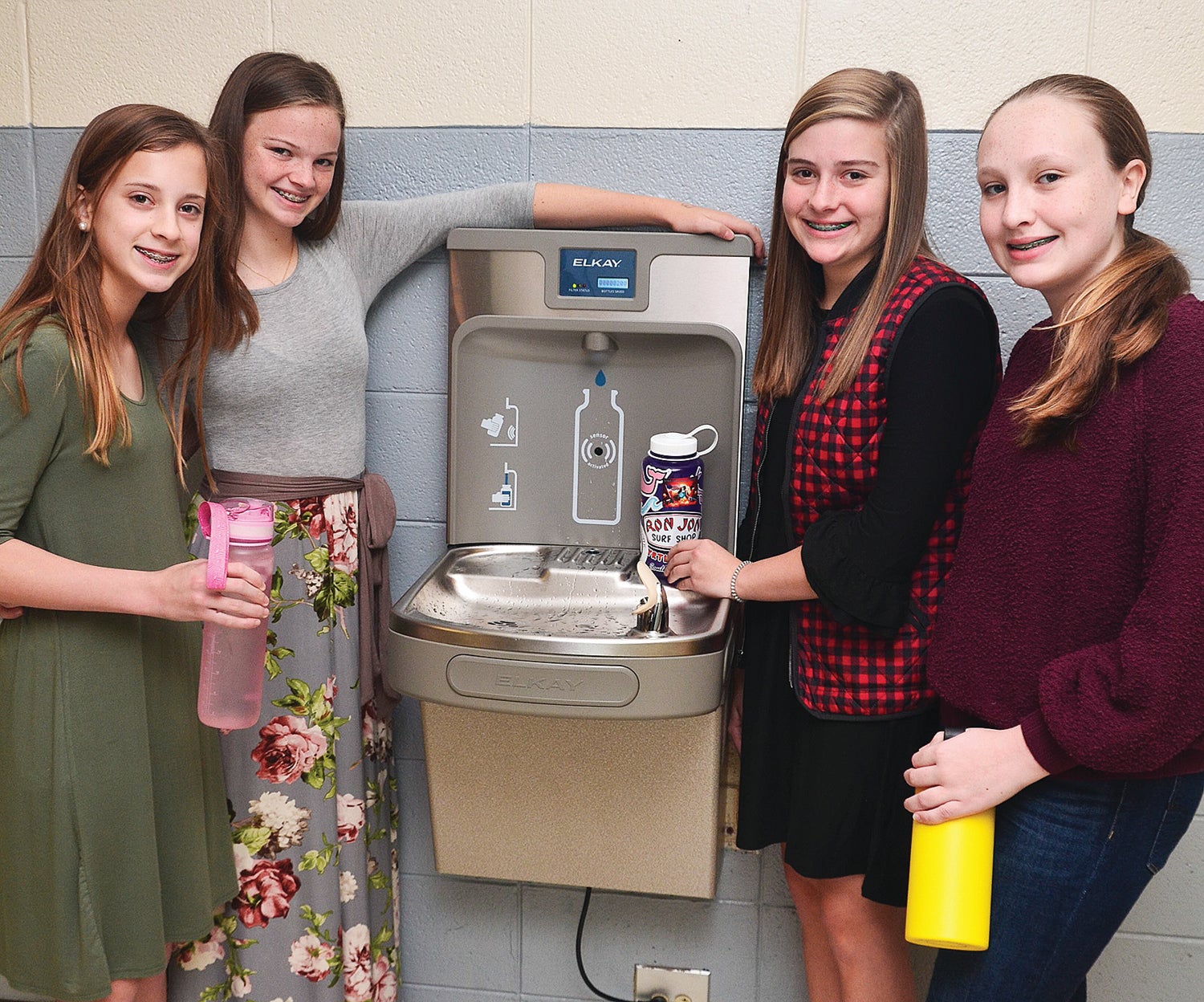South Davie installs water bottle filling stations
Published 9:33 am Thursday, October 24, 2019

- South Davie Middle School students Lauren O’Connor, Holt Carter, Mary Smith and Brooke Thurmond are ready to fill their water bottles at a new filling station.
|
Getting your Trinity Audio player ready...
|
Stay hydrated.
At South Davie Middle School, it not only is much easier now, it’s also more environmentally friendly.
Four filtered water bottle filling stations have been installed at the school, thanks to a healthy community grant from the Davie Community Foundation.
Teachers Gloria Chalmers and Kristin Gaskins submitted the grant application, and are thrilled with the installation and use of the stations. As part of the project, all students were given refillable water bottles.
Chalmers, health and PE teacher, said she noticed last year that almost all students had water bottles, with no easy way to re-fill them.
They hope other schools will follow, not only to promote student health but to help keep more plastics from going to the landfill.
“Any time we have an opportunity to promote healthy choices for our students, and also provide them ways to help reduce our environmental footprint, it’s a great thing,” said Principal Melissa Lynch.
Gaskins says the project also fits in well with the eighth grade curriculum, teaching students how to be good stewards of resources. They also study hydrology, learning about water as a finite resource.
“It will create an environment in which they can actively participate in showing their awareness of how their display of stewardship can make a direct impact to their school and the environment,” she wrote.
Students like it, too.
“The new water fountains are great because the water is cold and filtered so it doesn’t taste like tap water,” said Haley Benge.
“The new fountain is a lot faster and easier for water bottles as well as cool and filtered,” said Micah Fryar.
“The new water filtration system is not only convenient but much more eco-friendly,” said teacher, Kristi Martin. “What an awesome resource for South Davie Middle School.”
“The South Davie Middle School student body needs to be further encouraged to make healthy choices,” Chalmers wrote in the grant application. “They need to reduce their usage of sugary drinks, which are detrimental in a myriad of ways.”
Her stated goals were to improve the health of students, to generate enthusiasm among students for school-wide sustainability, and to reduce the number of disposable water bottles used at the school.
She cited statistics that only one in five disposable bottles is recycled, and that it takes a disproportionate amount of petroleum just to make and transport the plastic bottles, which take hundreds of years to biodegrade.



